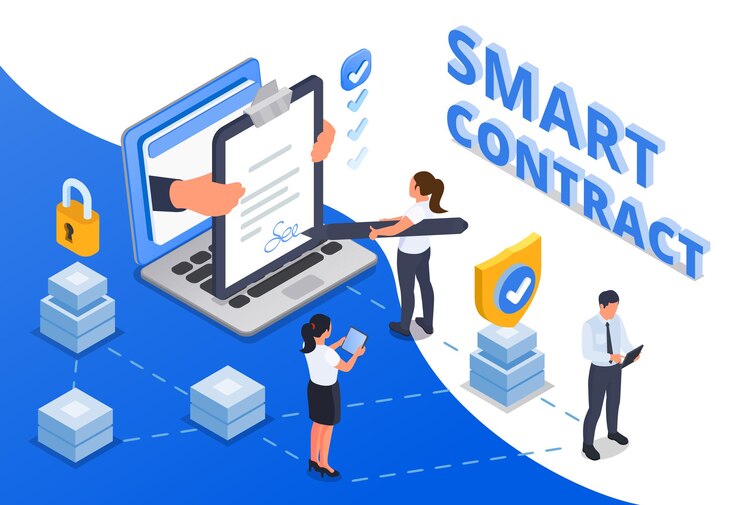Smart Contracts: What They Are and Why They Matter
Smart contracts are one of the most innovative applications of blockchain technology. These self-executing contracts automatically execute the terms of an agreement when predefined conditions are met, without the need for intermediaries. By leveraging blockchain’s decentralized and transparent nature, smart contracts offer significant advantages over traditional contracts. In this blog, we’ll explore what smart contracts are and why they matter.
- What Are Smart Contracts?
Smart contracts are digital agreements that automatically enforce the terms of a contract when specific conditions are met. They are written in code and stored on a blockchain, where they are transparent, secure, and tamper-proof. A smart contract includes the terms and conditions of an agreement, and once the predefined criteria are met, the contract self-executes, performing actions such as transferring funds, issuing a certificate, or triggering a workflow. For example, in a real estate transaction, a smart contract could automatically transfer ownership of a property once payment is made and verified.
- Eliminating Intermediaries
One of the primary advantages of smart contracts is their ability to eliminate intermediaries. Traditional contracts often require a third party, such as a lawyer, notary, or bank, to validate or execute the terms of the agreement. These intermediaries can add time, cost, and complexity to the process. With smart contracts, the need for intermediaries is removed, as the contract is self-executing and enforceable through blockchain’s transparency and immutability. This reduces transaction costs, accelerates processes, and simplifies the contract management process.
- Security and Trust
Smart contracts offer high levels of security, thanks to blockchain technology. Since blockchain records are immutable and decentralized, it is extremely difficult to alter or tamper with a smart contract once it has been deployed. This makes smart contracts highly secure and trustworthy, as all parties involved can have confidence that the terms will be executed exactly as agreed upon. Additionally, the transparent nature of blockchain allows all participants to see the terms and the execution of the contract, fostering trust among parties.
- Transparency and Efficiency
Smart contracts are transparent and efficient. Once deployed on the blockchain, all participants can view the contract’s terms and see how it is being executed. This transparency helps prevent disputes and ensures that all parties understand the agreement and its outcomes. Additionally, because smart contracts automatically execute, there is no need for manual intervention, reducing delays and errors. This makes smart contracts particularly useful in industries where efficiency, speed, and accuracy are critical, such as finance, insurance, and supply chain management.
- Real-World Applications of Smart Contracts
Smart contracts have a wide range of real-world applications. In finance, they are used for automating payments and clearing financial transactions. In the insurance industry, smart contracts can automate claims processing, ensuring that claims are paid out quickly and fairly. In supply chain management, smart contracts can facilitate transactions between suppliers and buyers, ensuring that goods are shipped and paid for when conditions are met. Smart contracts are also being used in industries like healthcare, real estate, and entertainment to simplify and automate contract management.
In conclusion, smart contracts are transforming the way agreements are executed. By eliminating intermediaries, enhancing security, and providing transparency and efficiency, smart contracts are set to revolutionize industries and business practices. As blockchain technology continues to mature, smart contracts will become an integral part of the digital economy, providing faster, more secure, and cost-effective ways to manage agreements.




